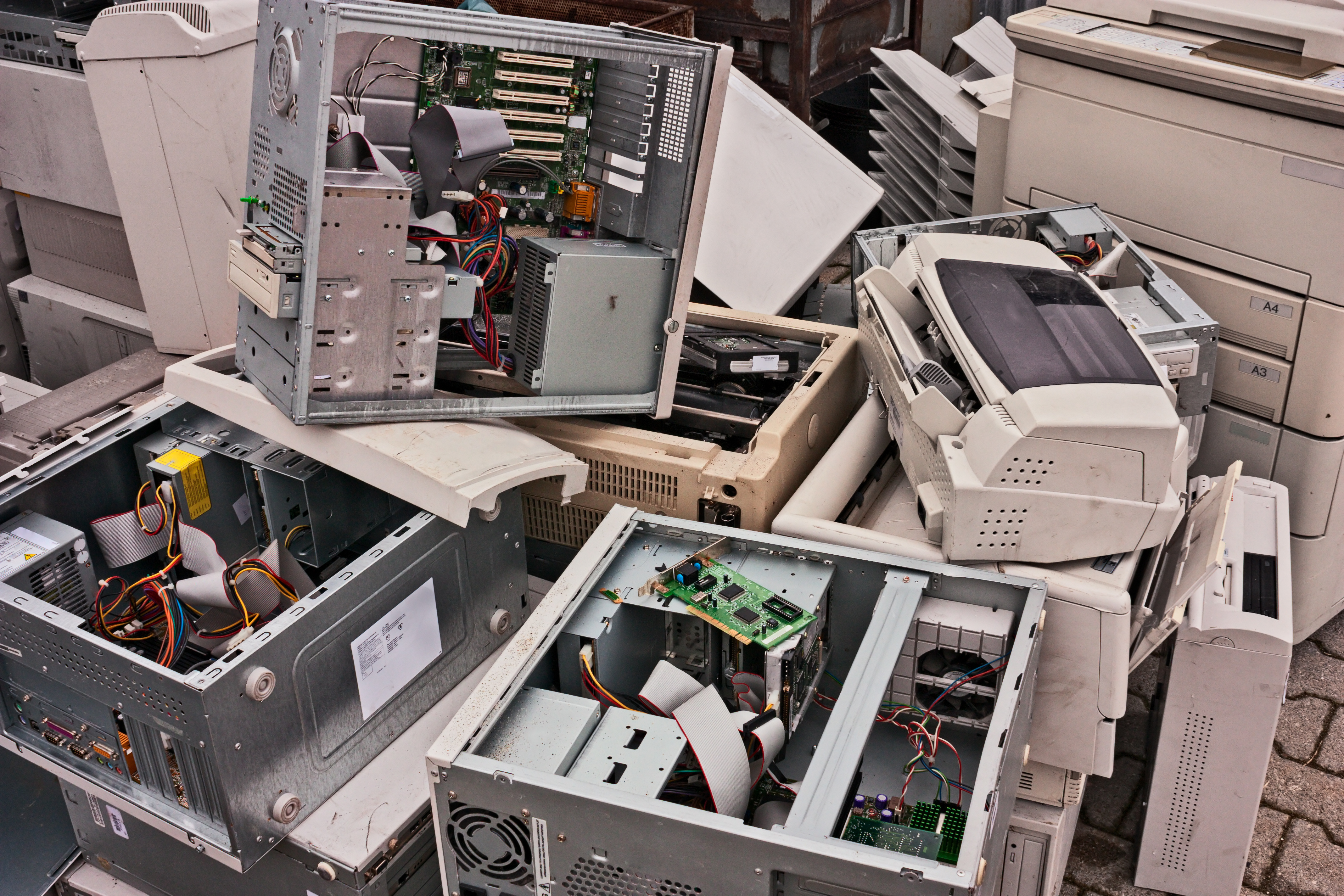 In 2017, India’s electronic waste market was worth an estimated 92.5 billion rupees (2017) and it has the potential to grow 300 billion by 2020.
In 2017, India’s electronic waste market was worth an estimated 92.5 billion rupees (2017) and it has the potential to grow 300 billion by 2020.
Approximately 5–7% of India’s e-waste is channeled into the formal recycling industry; the remaining 93-95% is dumped on informal recyclers through both formal and informal pathways.
E-waste recycling processes in the informal sector often results in leaching of precious metals, which represents an annual economic loss of around 200 million rupees and results in serious land and water contamination that threatens the people and wildlife that live near e-waste recycling plants. It is also untaxed, leading to further loss for national economy.
This scenario is common in developing countries around the world, where local populations are often unaware or unequipped to address the economic and environmental hazards of improper e-waste management.
With this in mind, E-WasteExchange.com – a digital platform available for corporates and society to directly transfer their electronic waste to government authorized, technically competent e-waste recyclers – conducted a “design thinking” project to understand the root cause of e-waste pollution. The results showed that e-waste flows to the informal sector primarily for the following reasons:
- Lack of awareness about the long-term environmental and public health impacts of informal e-waste recycling processes;
- Lack of convenient online infrastructure for citizens to dispose of e-waste;
- Costly reverse logistics;
- Lack of awareness about e-waste regulations;
- Lack of awareness about the potential economic benefits of formal e-waste management for businesses, individuals and government.
Addressing these issues is a herculean task, but E-WasteExchange.com recognizes that digitization and advanced technologies have a key role to play in addressing a range of sustainability challenges, including sustainable e-waste management. The good news is that these technologies already exist; they now need to be accepted and integrated into social fabric of society. Regulatory frameworks have a key role to play in making this happen. But that’s for another blog.
E-WasteExchange.com was built on four pillars: transparency, convenience, sustainable development and economic benefits. It is enabling the development of zero e-waste cities through digital technology innovations, working in collaboration with the national Digital India and Smart Cities initiatives as well Swacch Bharat, also known as the Clean India Mission.
The centralised cluster model of E-WasteExchange.com is replicable in developing countries and fast-developing economies. It can lead to significant reductions in greenhouse gas emissions, thus contributing to Sustainable Development Goals #11, #12, #13, #14, #15 and #17 through safe and environmentally friendly disposal, recycling and upcycling of e-waste and associated plastic waste.
The E-Waste Exchange circular economy model is truly the first of its kind and is transforming the e-waste management landscape. It has been recognized by the European Union’s Resource Efficiency Initiative, by India’s Ministry of Environment, Forest and Climate Change, and by a range of research institutions, including Green Growth Knowledge Platform partners TERI - The Energy and Resources Institute and the German Corporation for International Cooperation (GIZ).
E-Waste Exchange’s practices to ensure a safe and sustainable end-of-life for e-waste are both accepted and welcomed by businesses with proactive leadership and futuristic vision — those keen to become global leaders in sustainability by addressing critical grey areas like e-waste and associated plastic waste management.
E-Waste Exchange engages with the National Institution for Transforming India (NITI Ayog), providing policy inputs and sharing expertise for the development of digital interventions for resource efficiency and effective waste management strategies, policies and operations frameworks for the country.
E-Waste Exchange would be glad to coordinate with developing and fast-developing economies by establishing standardized frameworks for research and development, policy development, and monitoring and verification frameworks to help address e-waste and associated plastic waste challenges as well as related chemical pollution and greenhouse gas emissions.
To learn more about E-WasteExchange.com, please contact sanshodhan [at] yahoo.com (sanshodhan[at]yahoo[dot]com) or sanshodhan [at] e-WasteExchange.com (sanshodhan[at]e-WasteExchange[dot]com)


